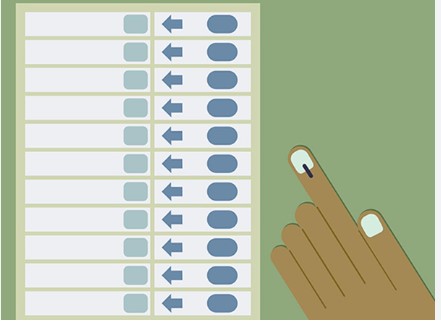Context:
Over four lakh undertrials in various Indian prisons are unable to vote in the 18th Lok Sabha elections due to a broad legal ban.
Key Highlights
- However, some prisoners, like Amritpal Singh and Abdul Rashid Sheikh, are allowed to run for elections while in jail.
- Bar against Voting rights for Undertrials: According to Section 62(5) of The Representation of the People Act 1951, individuals, whether convicted or undertrial, cannot vote in any election while confined in prison.
- As per National Crime Records Bureau (NCRB), in 2022 there were 4,34,302 undertrials across jails in India, comprising 76% of the total jail population of 5,73,220.
- The Election Commission could allow undertrials to vote via postal ballots, similar to other categories like persons with disabilities and senior citizens.
About Undertrials
- An undertrial refers to an individual undergoing trial or held in custody awaiting trial in a court of law.
- The definition, as per the 78th Report of the Law Commission, includes those in judicial custody on remand during investigation.
Arguments in Support of Voting Rights for Undertrials:
- Legal experts argue that if certain categories of prisoners are allowed to run for elections, undertrials in jails should also have the right to vote.
- Rationale behind barring undertrials lacks reasonable classification based on the nature of the crime or duration of the sentence.
- Article 14 of the Constitution, which envisions the right to equality.
- The UN’s Universal Declaration of Human Rights, which advocates for universal voting rights regardless of incarceration status.
- Indira Gandhi v. Raj Narain (1975), The Supreme Court affirmed that free and fair elections are an integral part of the ‘basic structure’ of the Constitution of India, and any laws or policies conflicting with this principle could be invalidated.
Arguments Against of Voting Rights for Undertrials
- A five-judge constitution Bench in Kuldip Nayar v. Union of India (2006), The Supreme Court determined that the right to vote (or the right to elect) is pure and simple, a statutory right.
- In Anukul Chandra Pradhan v. Union of India (1997), SC upheld the constitutional validity of section 62(5) on four grounds:
- The right to vote is a statutory right subject to statutory limitations.
- Infrastructure and police deployment would be required, posing a resource crunch.
- Individuals in prison due to their conduct cannot claim equal freedom of movement, speech, and expression.
- Restrictions on prisoners’ right to vote are reasonable to keep persons with a criminal background away from the election scene.
Also Read:
Niti Aayog Report: Gap in Cancer Screening Found at Ayushman Centres

